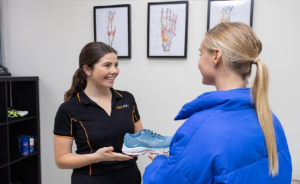
The Impact of Exercise on Heart Health: A Cardiologist’s Guide
Imagine being surrounded by towering buildings and the ceaseless symphony of city sounds, you spot a small medical clinic offering treatments for spider veins Manhattan. This simple phrase etched on their window sparks a deep thought within you. You begin to question, whether these unsightly veins are a signal of underlying heart issues. Could regular exercise be the key to preventing this? Does it truly have a significant impact on our heart health? Let’s dive deeper into this subject. Let’s explore the intricate relationship between exercise and heart health.
The Heart-Exercise Connection
Think of the heart as an engine. Just like any engine, it needs to be revved up. Exercise does exactly that. It increases your heart rate, makes your heart muscles work harder, and keeps the engine smoothly running. But is all exercise equal? The short answer – no.
The Right Type of Exercise
Not all exercises are the same. Some are good for your heart, others not so much. For instance, moderate-intensity exercises like brisk walking or cycling can be beneficial. They get your heart rate up, but not to extreme levels. High-intensity workouts, on the other hand, can put too much stress on the heart.
Frequency and Duration Matters
How often should you exercise? And for how long? Generally, it’s recommended to aim for at least 30 minutes of moderate exercise most days of the week. Consistency is key – it’s better to exercise regularly with shorter sessions than to have long, infrequent workouts.
Exercise Alone Isn’t Enough
Exercise is important, no doubt. But it’s not the only factor at play. Diet, lifestyle choices like smoking and drinking, stress levels – these also have a major impact on heart health. So while exercise is a vital piece of the puzzle, it’s just one piece. You need to consider the entire picture.
The Bottom Line
So, yes, exercise can have a significant impact on heart health. It can help prevent issues like spider veins, keep your heart strong, and reduce the risk of heart disease. But remember, it’s not the only factor. Balance it with a healthy diet, good lifestyle choices, and regular check-ups with your doctor.

